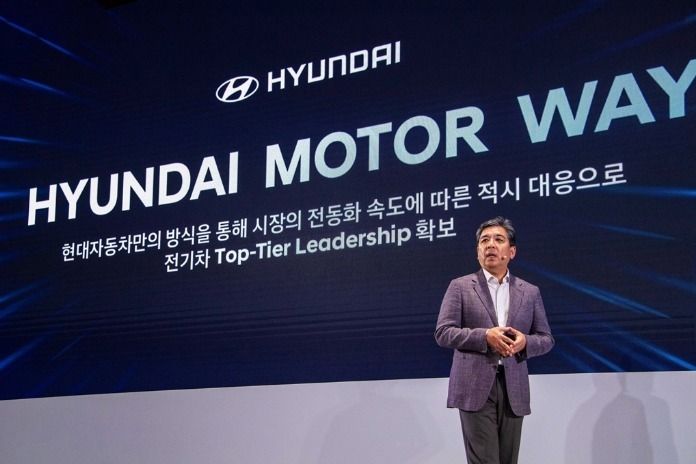By Alimat Aliyeva
Hyundai Motor and Kia have officially launched a new public-private consultative body aimed at advancing cooperation in the future mobility sector, uniting government agencies, private companies, and research institutions to tackle the growing challenges of modern transportation, Azernews reports, citing Korean media.
The new alliance, called the Next Urban Mobility Alliance (NUMA), was unveiled during a launch ceremony held on Monday at the Grand Walkerhill Seoul Hotel in eastern Seoul. The event was attended by Second Vice Minister of Land and Transport Kang Hee-up, Song Chang-hyeon, head of Hyundai’s Autonomous Vehicle Platform (AVP) division, and representatives from numerous public and private sector partners.
This initiative follows Hyundai and Kia’s earlier announcement in March and represents a major step forward in their commitment to reshaping the future of urban mobility.
The formation of NUMA is rooted in a shared recognition that critical transportation issues—such as regional mobility gaps, aging infrastructure, and the mobility needs of socially disadvantaged groups—require integrated solutions. These solutions must combine corporate innovation, government policy, and academic research.
To date, 31 public and private organizations have joined the alliance. These include key players such as the Ministry of Land, Infrastructure and Transport, Gyeonggi Province, KT, CJ Logistics, Naver Cloud, as well as leading academic institutions like Seoul National University and Yonsei University.
Hyundai and Kia will take the lead in steering the alliance, focusing on fostering collaboration and developing pilot projects among participating members. Meanwhile, the South Korean government is preparing to introduce new mobility-related policies—most notably the enactment of a Basic Mobility Act—aimed at guaranteeing universal access to transportation and bolstering the nation’s smart mobility ecosystem.
At the ceremony, Vice Minister Kang emphasized the importance of inclusive innovation:
“The government and the private sector will work together to build a country where everyone can move freely and safely. Transportation is no longer just infrastructure—it’s an essential service that connects every aspect of daily life.”
As part of its broader vision, Hyundai has also been exploring flying taxis, autonomous delivery robots, and purpose-built vehicles (PBVs) as next-generation mobility solutions. These innovations could soon become part of the alliance’s real-world testing and rollout strategy in smart cities across Korea.
Closing the event, Hyundai’s Song Chang-hyeon stated:
“As organizers and partners, Hyundai and Kia are committed to promoting inclusive mobility rights for underserved communities through technological innovation, creating a global shift in urban transportation that connects cities and people around the world.”

